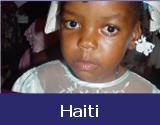United Caribbean Trust
Conservation - land
In memory of
Conservation - sea
Endangered species
Turtle stories
|
|
home >> caribbean >> caribbean
ecotourism>> caribbean
conservation>>

CARIBBEAN
- conservation
(a)Design and Establishment of Sea Level/Climate Monitoring Network.
The sea level/climate observation network proposed for installation in
each of the twelve participating countries will include a standardized
set of instruments to measure water level, vertical land motion (which
affects the relative relationship between sea surface and land interface),
air and sea temperature, wind velocity, precipitation, and other site-specific
ancillary variables. The network will be composed of 18 state-of-the-art
gauges generating digitized data available in near real time by satellite
telemetry or telephone. In addition, each tide gauge bench mark will be
fixed in geocentric coordinates so that the vertical movement of the land
can be distinguished from sea level changes (local tide gauges measure
a combination of the two). The U.S. National Ocean Service of the National
Oceanographic and Atmospheric Administration (NOAA) has been involved
in the installation of tidal gauges around the world as part of the Global
Sea Level Observing System (GLOSS), and will act as lead agency in the
installation of the proposed network. Each participating country will
be directly involved in the selection of sites, and designated national
agencies, such as the National Weather Service, will manage their individual
observatories. The Caribbean Meteorological Institute (CMI) will be the
lead regional agency, and will take on the responsibility of overseeing
the network after project completion. To assure long-term financing for
this activity, the project will establish the Tidal Gauge Replacement
Fund (US$50,000) as an earmarked account within CMI for the maintenance
and replacement, as needed, of the sea level tidal gauges. It is expected
that the Tidal Gauge Replacement Fund would be supplemented or replenished
through the collection of data user fees, where appropriate, and other
related contributions.
(b)Establishment of Databases and Information Systems.
The data bases and information system to be established under this component
will form the backbone for the participating countries in their efforts
to plan for adaptation to climate change. The information system will
allow key regional and national institutions to acquire, analyze, store,
and disseminate data on climate change and the impact on natural and manmade
systems. It will facilitate access to the information on a wide range
of public and private sector users and researchers, and will also serve
to facilitate project management and monitoring and evaluation by linking
Regional Archiving Centers with the data bases of the National Implementation
Coordinating Units (NICUs) and the Regional Project Implementation Unit
(RPIU). Each one of these nodes will be provided with the necessary software
for data base management, data visualization and display, INTERNET communication,
and web browsing. Appropriate training will be provided upon installation
of the system, as well as ongoing technical support.
|
|


 


|







